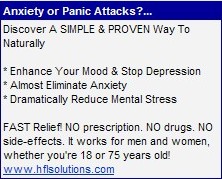Driving Anxiety Helped With Progressive Muscle Relaxation
Driving anxiety or a fear of driving, is no small matter and if you’re struggling with this issue, you might feel as if you’d be happier just not having to struggle with your anxiety at all. So, you stop driving and just don’t deal with it, unfortunately, this means that you have to deal with asking other people to give you a ride to get anywhere. This can get tiresome for you and your ride, so, why not find a way to overcome your driving fear and get yourself back behind the wheel?
You can do this, but you need to have the right knowledge which will help you to not only cope with your driving anxiety but also learn to conquer it. When you have the tools you need, you can tackle any anxiety you feel and it won’t feel as if you’re climbing a mountain to do so.
It is thought that the muscles and the tension within them are directly related to feeding your anxiety. Your muscles store tension in them and this adds to your anxiety, however, if you can allow your body to relax, you will likely find that you feel less anxiety and develop a feeling of calm. Consider progressive muscle relaxation to ease your driving anxiety and to keep yourself moving free.
Now, you might be wondering how progressive muscle relaxation can work, but if you consider that your tight muscles are contributing to your problem then you can begin to understand how forcing your body to relax will help you to ease your anxiety.
When ever you begin feeling anxious, you can practice progressive muscle relaxation by tightening your muscles and then forcing them to relax. So, by working to tighten your muscles and then forcing them to relax, you’ll begin to feel your body relax. When you’re feeling driving anxiety, all you have to do is focus on tightening each muscle group and working to relax them. When you combine this with deep breathing, you will probably find that the whole time you’re driving, you’re relaxing and that will mean that you’re not thinking about how nervous you are.
Sometimes, it can be so hard to relax and take control of your anxiety, but knowing how to use tools such as progressive muscle relaxation can help you to ease your driving anxiety and control any feelings of tension that you might be feeling at all. So, the next time you’re feeling anxious about driving, or you’re on the road and begin feeling that familiar driving anxiety, consider using progressive muscle relaxation to ease the tension you’re feeling.
|
Receive a Free Report! Simply enter your name and email address below to receive your special free gift and blog updates. Members that subscribe will also receive special benefits, such as promotional discounts and free offers. Signing up is free and you can unsubscribe at any time. Subscribe Today For 'Stop Panic and Anxiety Attacks' |
What You Should Do After Panic Attack
You just had a panic attack. Great, now what do you do after panic attack? For many people who suffer from this type of situation for the first time, a panic attack can seem like the end of the world, so you might wonder what you’re supposed to do. Will you need to seek therapy? Will you have to take anti-anxiety medications to keep this from happening to you more in the future? What are you supposed to do after you’ve had a panic attack?
If you’ve just had your first panic attack:
If you have just had your first attack, you need to know that you really don’t need to do a whole lot after panic attack because it may be just a one time thing. Don’t rush to your doctor and don’t seek therapy. What you need to do now is start tracking the way you’re feeling.
Keep an eye on your emotional state and put it down on paper. Are you under a lot of stress at work? What about your home life? How is that going? Have you had any emergencies lately? All of these factors could help you to discover what was behind the panic attack.
Recognize that most people suffer from at least one anxiety attack in their lives. This doesn’t mean that you’ll have another one and it doesn’t mean that you’re destined to keep having them for the rest of your life, so don’t be scared of another attack, just go about life as normal. Do what you can to reduce the stress and anxiety you might be feeling, which could help offset anxiety and decrease the chances that you will have another of these episodes.
If you’ve just had another panic attack
Sometimes we have stressful periods of our lives that can cause us to feel additionally anxious and this added stress can cause us to have panic attacks if we aren’t careful. If you find that you have a second panic attack, keep tracking your anxiety and what is going on in your life. Sometimes, getting to the root of the problem is as easy as knowing what’s causing your issues.
If you find that you are suffering from frequent panic attacks, you might want to choose to seek the help of a medical professional or a therapist who can help you to relax and get to the bottom of your emotional problems. Sometimes, we find that the cause of our initial anxiety and the source of the panic attacks that follow are entirely different, but that by dealing with each issue in a safe surrounding, we can fight the panic we might feel rising at any time.
When you have a panic attack for the first time, it’s really scary, so you should make sure to rule out things such as heart attacks, but once you’ve done this, you shouldn’t jump to any conclusions. Try calming down and easing your anxiety and put your panic attack from your mind for now. When you know how to deal with your first one, you can easily understand what to feel after panic attack.
|
Receive a Free Report! Simply enter your name and email address below to receive your special free gift and blog updates. Members that subscribe will also receive special benefits, such as promotional discounts and free offers. Signing up is free and you can unsubscribe at any time. Subscribe Today For 'Stop Panic and Anxiety Attacks' |






